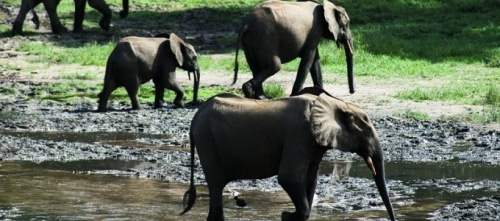
Protecting the migratory and pathway routes of animals is critical to their survival and biodiversity. Endangered by human activity these “wildlife hubs” are essential for the globe. UNEP (United Nations Development Programs) urges immediate action or by 2050 there will be a loss of abundance and species of wildlife “equivalent to eradicating all fauna and flora in an area roughly the size of the United States or China.” (From UN News Service Release).
Convention on the Conservation of Migratory Species:
Some 100 governments are meeting at a UN conference in Bergen, Norway, organized by the Convention on the Conservation of Migratory Species of Wild Animals (CMS) of the UNEP. The conference this week is focusing on the importance of ecological networks as an efficient instrument to protect a wide range of migratory animals. “For all the frequent travelers of the animal world, ecological networks are essential for their migration and survival. International cooperation is crucial to manage these large trans-boundary networks. The commitment of all countries is needed, so that future generations can still marvel at and benefit from these nomads connecting our planet,” According to CMS Executive Secretary, Elizabeth Maruma Mrema.
Models of Success:
UNEP also launched a report at the conference on how to protect migratory networks, highlighting stories where international collaboration has led to positive outcomes. It offered a few examples:
• Sharks that have roamed the oceans for over 400 million years were becoming endangered due to the demand for the fins for soup in the islan country of Palau but new measures helped not only to protect the species but also stimulate the local economy. “Two years ago, Palau became the first country to declare its coastal waters a shark sanctuary –scientists now estimate that shark diving tours are generating 8% of the country’s GDP,” said Achim Steiner, UNEP Executive Director.
• 10-year program restoring/conserving 7 million hectares of wetland in China, Iran, Kazakhstan and Russia, which has boosted the prospects of survival for the Siberian crane.
• Drinking water supplies were enhanced, and a trans-boundary enforcement measure to protect the population of mountain gorillas on the borders of the Democratic Republic of the Congo (DRC), Rwanda and Uganda.
In spite of these successes, UNEP expressed its concern about large countries which account for almost 36 per cent of the global land area that are still not parties to the Convention, posing challenges for protecting migratory species worldwide. Poaching is also on the rise, particularly in the grasslands and savannahs of Africa and Central Asia. “Organized poaching on animals such as rhinos, elephants and antelopes is increasing rapidly in Asia and Africa and support is desperately needed to address this at a wider international scale,” according to Christian Nellemann, of UNEP’s GRID-Arendal centre in Norway. (See Film Report: “Black Rhino Extinction” -
diplomaticallyincorrect.org/films/movie/black-rhino-extinction/29125
The UNEP report (s) offers proposals/recommendations to secure ecological networks for migratory species – including:
• assessing national infrastructure development projects to ensure migratory pathways are not blocked,
• combating environmental crime, Read: “Elephant-Rhino Poaching” -
diplomaticallyincorrect.org/films/blog_post/elephant-rhino-poaching-by-ambassador-mo/34382
• increasing anti-poaching training and enforcement, Read: “Concerned in Trade of Skins” -
diplomaticallyincorrect.org/films/blog_post/concerned-on-trade-in-snake-skins-in-luxury-products-by-ambassador-mo/32547
• increasing marine protected areas, and, , (See Film Report: “Caribbean-Pacific Sea Corridor” -
diplomaticallyincorrect.org/films/movie/caribbeanpacific-sea-corridor/28361
• restoring wetlands and coastal zones. Read – “For Agriculture, Water, Jobs” -
diplomaticallyincorrect.org/films/blog_post/for-agriculture-water-jobs-investing-in-ecosystems-by-ambassador-mo/34668
See also a bit of a different look at biodiversity & fashion: See/Read: Biodiversity Fashion Trendsetter” -
diplomaticallyincorrect.org/films/blog_post/biodiversity-fashion-trendsetter-by-ambassador-mo/28668
By Ambassador Muhamed Sacirbey
Facebook Become Fan at “Bosnia TV” and “Diplomatically Incorrect”
Twitter – Follow us at DiplomaticallyX
“Ecology Diplomat” Channel -
diplomaticallyincorrect.org/c/ecology-diplomat

